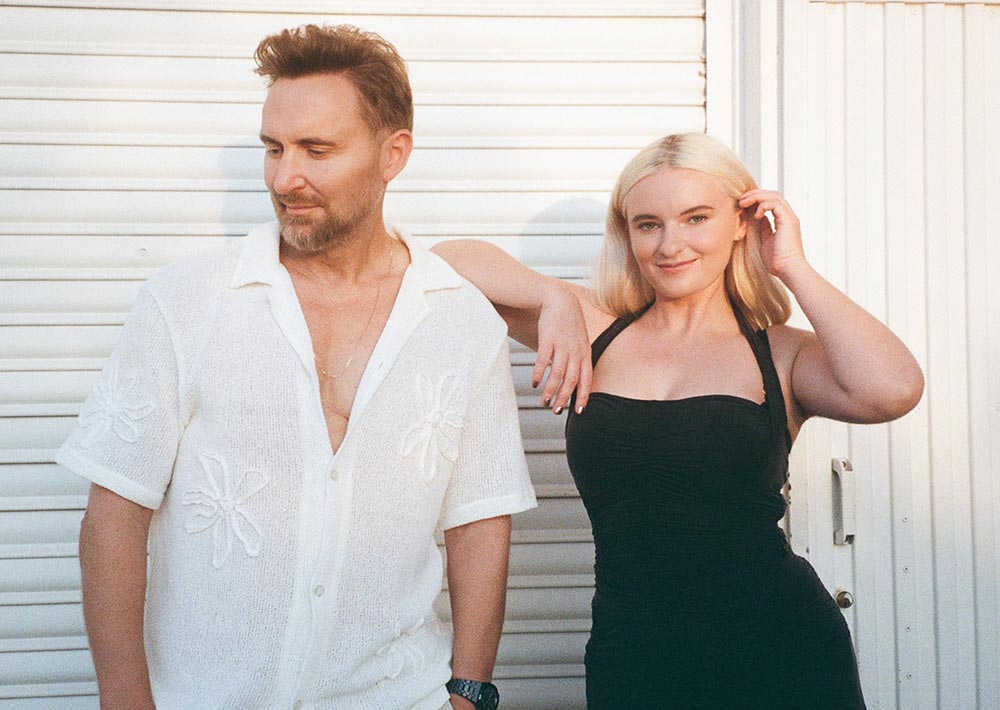
Clean Bandit’s Jack Patterson: “It’s that alchemy of finding the sweet in the bitter.” Photo: Olivia Anderson
Billion streamers Jack Patterson and Grace Chatto on new single ‘Cry Baby’ and the benefits of writing on the move
Clean Bandit formed in 2008 while its members were studying at Cambridge University. For many bands, the departure of their lead singer early on would be a major issue, but when Love Ssega decided to pursue a different path, it opened the door for Grace Chatto and brothers Jack and Luke Patterson to create a style of music that would bring together the electronic and classical and be deliciously enticing for a roll call of eminent guest vocalists.
That approach, combined with their knack of writing infectious and mood-grabbing anthems, led to Clean Bandit becoming one of the most successful British groups of the century so far. In fact, alongside Queen, Arctic Monkeys, Coldplay and One Direction, they’re one of only five UK bands to have four (or more) songs in Spotify’s Billions Club. From the Ivor Novello and Grammy-winning Rather Be, through Rockabye, Symphony, and Solo, that quartet of jumbo streamers showcase everything that makes the trio such a dynamic modern dance act.
2024 has seen Clean Bandit stretching their musical legs. First came MAR AZUL, their collaboration with Colombian reggaeton icons Piso 21 and Jhosy. They then worked with Puerto Rican rapper Darell on the tropically-tinged Lambo Sport. Returning to more familiar ground, new single Cry Baby has all the hallmarks of a classic Clean Bandit song. Its bold and buoyant production, assisted by David Guetta, carries along an instantly catchy melody and a welcome return to vocal duties from Rockabye’s Anne-Marie.
With such a distinctive and successful sound, we jumped at the chance to chat with Grace and Jack about their latest banger…
What can you tell us about the new single, Cry Baby?
Jack Patterson: “We wrote it with Camille Purcell, Anne-Marie, and Steve Mac. It was in Steve’s studio, and it was a number of years ago we started the song, about four years ago. The actual writing was very quick. I don’t know if there are any fascinating anecdotes about the writing process. We wrote it in a few hours together, and it’s a personal song to Anne-Marie. It was some rapid chords from me and Steve.”
Grace Chatto: “It started with chords. With most songs these days, we start with the chord progression and we then see the mood that that evokes. With some of our earlier songs, Jack used to start with a riff. Rather Be started with that riff and Symphony started with the riff that you hear in the intro, but always lyrics come last for us.”
So it’s the chords that inspire a mood which then inspires the lyric? Or do you have a more deliberate conversation about what the song could be about?
JP: “Songwriting sessions are always like therapy sessions. That’s always the case. We always start with a long conversation about how everyone’s feeling. Camille, in particular, is so good at turning quite difficult or devastating personal pain and heartbreak into amazing pop songs. It’s that alchemy of finding the sweet in the bitter. We’ve done that with her many times before. Like Solo for example, with Demi Lovato, that Camille did that exact same process with Grace, pulling out those heart-wrenching anecdotes…”
GC: “…and making it fun and sexy at the same time, particularly with that one. This one, it’s not so sexy, but the pain is juxtaposed with the light, jauntiness of the melodies.”
What’s the secret to being able to turn those conservations into three-minute pop songs?
JP: “We’re more involved with the music, rather than the lyrics. It’s our job to create the bed for that and create the context for that story to sit within. Often it’s trying to make those contrasts, I think our thing is emotional bangers. So in Cry Baby, the verses are quite devastating, but the chorus is empowering – this guy’s been messing around, and he’s coming back crying, saying, ‘I’m so sorry.’ And it’s just like, ‘Well, no, I’m not hearing that.’
“It feels like the music does that job. It enforces that empowerment or supports it. When that synth comes in, it feels like a lift-off moment. The music feels like that release, then the drop happens and the strings come in, and it’s like, ‘Yeah, we’re off.’ The music video represents that very much as well. We love transport as a metaphor, the sense of moving. We often write music on transport. Rather Be, we wrote the melodies all on the tube, and then Symphony, we wrote those melodies on a flight.”
Is that sat with a laptop and a DAW open?
JP: “Yeah, the QWERTY keyboard. I’m just clicking in. But I feel like there’s a sense of rhythm when you’re in motion, and it’s often that those are the moments that are stolen moments as well, where you’re not being forced to think and the thoughts and the melodies just come.”
Are those the foundations, that then you give over for the lyricist, or is that the second part once you have the lyrics?
JP: “It kind of depends. That wasn’t the case for Cry Baby, we wrote that over the chords. But with Rather Be and Symphony, we had those instrumentals all fleshed out, pretty much all the melodies, before the lyrics.”
How do you divide and conquer that between the two of you?
GC: “Jack is very much the principal songwriter. I latch on to ideas that he’s having and will be like, ‘Yeah, that’s a verse, let’s build that out.’ He’s having a million ideas all day, every day, so it’s taming and carving out that I do. I’m not really a songwriter as such. Then, with lyrical concepts, I tend to be the one who – when I get the mood from the chords – will come up with the concepts, but then work with lyricists to actually write them. I’m not a poet at all, I can barely string a sentence together. I exec produce the songs. We work very well together in terms of production.”

Clean Bandit’s Grace Chatto: “The chords that Jack writes and the melodies are always so distinctive and unexpected.” Photo: Elliott Morgan
It feels like the worlds of producer and songwriter are more merged than ever before. Is it hard to know where one stops and the other begins?
JP: “Yeah, absolutely. I say we wrote the song very quickly, but that was the kind of skeleton. We’ve worked on the production for years, and it’s taken so many different turns down that time. It is difficult to know what’s production and what is writing. Like you said, those two worlds are merging more than ever. Broad brushstrokes that you take in the production process could have a huge impact on how the song is interpreted and how it feels.”
GC: “You definitely write with sounds. There was a time when I remember you were trying to write just piano and voice. Was Tears written like that initially?”
JP: “I don’t know, maybe.”
GC: “It was in the period when you were writing a lot with Sam Romans. We were thinking that writing at the piano is such a pure way. But actually, the natural way for us has always been sounds and writing together. Most songs start with this Operator synth on Ableton.
JP: “Our first album was extremely difficult to render live. So when we did our second album, we really wanted to make sure that all the songs worked on the piano, because we toured our first album and it was always quite hard. We wanted to be able to strip it back. So on that second album we made sure all the songs worked just on the Joanna.”
GC: “To give examples on the first album, our songs Mozart’s House and Telephone Banking, they don’t really work on the piano. But then Rather Be, as he said, Jack wrote it on a QWERTY keyboard. So I feel like that melody wouldn’t have come out like that if he was writing on a piano. I thought he was typing an email or something, but he was like, ‘Listen to this.’”
Do you think the changes that you made for What Is Love played a part in songs like Symphony and Rockabye becoming gargantuan?
JP: “Actually, some of the biggest records on What Is Love, they did work on the piano, but they weren’t actually composed like that. Symphony and Rockabye were still written on the QWERTY keyboard.”
GC: “With the Operator synth, which is the sound that you hear in Rather Be, Symphony, and Rockabye.”
JP: “It’s a sine wave, very pure, a very basic sound, but that’s the heart-wrenching sound.”
Because things worked on those early singles were you second-guessing yourself, because you’re either trying to replicate what went well or trying to stay away from that? Does having that success put a different sort of pressure on the follow-ups even now?
JP: “It’s quite a complicated question, but yeah, it does. I think for a time we did want to veer away from what we’d done. Then there’s been a long period where we wanted to do the stuff that we used to do, but people weren’t letting us. We were getting pressured to move away from that sound and try to be more like what was current. That in itself was a different kind of pressure and was quite frustrating. On Cry Baby, as a result of that, I was trying to find our feet again and do something that’s more true to what we know Clean Bandit fans love: the big emotional bangers with orchestral moments and a bit more music.”
GC: “I’ve not really felt any pressure. When we’re doing our thing, and when we get together with other songwriters, it always just flows. There’s never been a block or difficulty for Jack, if anything it’s too many ideas we can’t cope [with]. There was a period the last few years where we were having battles with the record label getting involved in the songwriting, which was a shame. But now we’re free, and everything feels easy, and the new songs that we’ve made recently are really, really different, actually, to anything we’ve done before, but really exciting.”

Clean Bandit’s Jack Patterson: “We were getting pressured to move away from that sound and try to be more like what was current.” Photo: Olivia Anderson
Grace, what would you say are the defining elements of the best Clean Bandit songs?
GC: “The chords that Jack writes and the melodies are always so distinctive and unexpected. I think there’s always a delicacy in the production as well, that I love. We kind of mix it with bombastic vocals and epic strings. I think Rather Be is the epitome, and Symphony, of the really delicate synths and then big strings and big voice.”
And do you find that there are specific places, moods or even times of day that best suit your songwriting?
GC: “Definitely moving along.”
JP: “More recently we’ve been doing traditional songwriting sessions with other people. I want to take some time to go off on my own and make a load of instrumentals. I’d quite like to make some instrumental music, actually, because that’s our main focus: working on the production and working on the sounds. We’ve never made purely instrumental music. I think that could be quite liberating.”
Was that just a fortuitous thing, concentrating on the music, because you lost your original vocalist early on, or was that always the plan for the band?
JP: “Yeah, it was kind of fortuitous. When we did our first deal, our singer Love Ssega, he was a bit too busy. He’s an Übermensch. He was captain of the Cambridge boxing team and he was doing a PhD in laser analytics and developing this crazy new technology. Making quirky house music was not the number one priority. He was a huge part of our early sound.
“We were a bit terrified and didn’t really know what to do once Sseg left. Rather Be was a response to that. We were like, ‘Shit, we need to make some pop music now. Let’s try and make a banger.’ So we did that as a kind of response to our nerves about not being able to play with Sseg anymore because he was the frontman.”
When you’ve had the success that you’ve had, does that change your mindset around what you’re trying to achieve when you write a song now?
JP: “I think it changes the environments that we find ourselves in. We find ourselves working with people who we never thought we would be working with, and studios that we never thought we’d end up in. That’s always such an amazing realisation, like, ‘Oh, here I am in Miami, writing with the crème de la crème of Latin American songwriters, making bossa nova house.’ That’s just crazy, or being invited to a writing camp in Lagos working with top African record labels.
“That’s the kind of thing that’s always quite shocking and surprising, but when you actually get down to it, you’re still just mucking about on the keyboard at the end of the day, seeing what sounds nice. Like, ‘How about this? Is this all right? Yeah, let’s go.’ That fundamental process hasn’t really changed.”
GC: “The biggest change is what we were saying already… In the past, we used to make the full track, even the vocal melodies, before we think about the lyrics at all. Rather Be was like that: the whole track and melodies were written and then we’re thinking about the concept and the lyrics weeks after. Now we go and have a writing session and start from scratch on that day, and it all comes together in one day in terms of composition. But then that’s really exciting as well.”


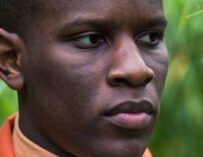
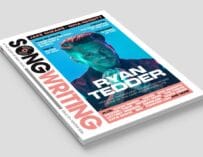



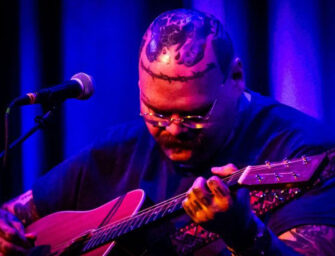
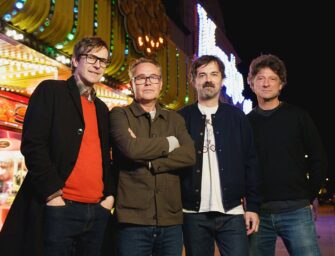

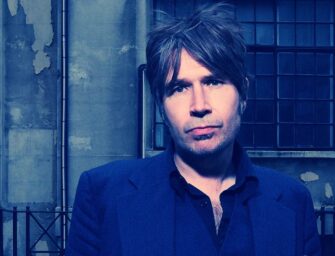























Related Articles